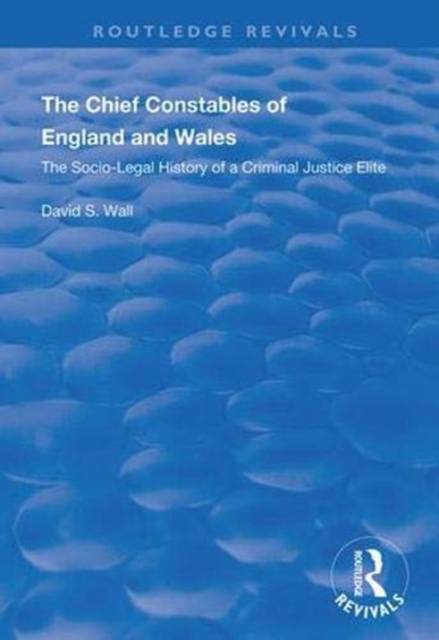
- Retrait gratuit dans votre magasin Club
- 7.000.000 titres dans notre catalogue
- Payer en toute sécurité
- Toujours un magasin près de chez vous
- Retrait gratuit dans votre magasin Club
- 7.000.0000 titres dans notre catalogue
- Payer en toute sécurité
- Toujours un magasin près de chez vous
The Chief Constables of England and Wales
The Socio-Legal History of a Criminal Justice Elite
David S WallDescription
First published in 1998, this book analytically examines the social and professional origins of one of the most powerful groups in society, the Chief Constables of the police forces of England and Wales. By examining the selection policies of police authorities during the past century and a half, it provides an explanation of the contrast that is found between the picture of yesterday's Chief Constable as an ex-military, tweed suit wearing, friend of the local aristocracy and the technocratic managerial image of Chief Constables today.
Drawing upon analysis of the careers of fall Chief Constables known to have held office between 1835 and 1995, and supplemented by contemporary and recent literature, this book illustrates the subtle interaction that was found between politics and policing at both local and national levels. At the centre of these findings is the observation that whilst they were once part of their respective local power elites, Chief Constables are now an elite group in their own right with direct links with central government.
Spécifications
Parties prenantes
- Auteur(s) :
- Editeur:
Contenu
- Nombre de pages :
- 342
- Langue:
- Anglais
- Collection :
Caractéristiques
- EAN:
- 9781138342293
- Date de parution :
- 07-12-20
- Format:
- Livre broché
- Format numérique:
- Trade paperback (VS)
- Dimensions :
- 155 mm x 234 mm
- Poids :
- 612 g

Les avis
Nous publions uniquement les avis qui respectent les conditions requises. Consultez nos conditions pour les avis.






